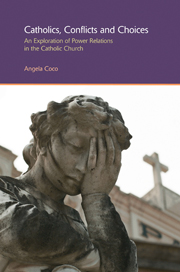9 - A most (un)natural order
from Part III - Gender work in Christ's household
Summary
While religious arguments for social teaching are said to be based on “natural law” there appear to be quite a few modes of human nature and reason that are not considered in contemporary orthodox theologizing. Social structures which are a natural outcome of human interaction have a longer lifespan than those of individual consciousnesses; they cross generations. This is possible because once tenets of faith are committed to writing they are interpreted in ways that set limits to practice. As has been evident throughout history, when social meanings and relationships change – as they did following the Enlightenment and Reformation periods, for instance – the interpretations of faith do not change readily with them. The last two decades have seen radical and rapid changes in social relations as information and communication technologies have brought peoples around the world much closer together. The increased availability of knowledge of other worldviews has broadened the array of means available for people to make sense of religious lives.
A change in consciousness has emerged by which people in late modernity focus their life projects on the cultivation of self and the ongoing negotiation of identity beyond the limits provided by the Catholic milieu (Giddens 1991). This means that people may find ideas that do not sit easily with their Catholic beliefs. Participants described conflicts that I have grouped into eight typical experiences of power relations which drew correspondingly patterned responses. Situation movement states they reported can only be understood to apply at the point in time they related them.
- Type
- Chapter
- Information
- Catholics, Conflicts and ChoicesAn Exploration of Power Relations in the Catholic Church, pp. 211 - 222Publisher: Acumen PublishingPrint publication year: 2013

